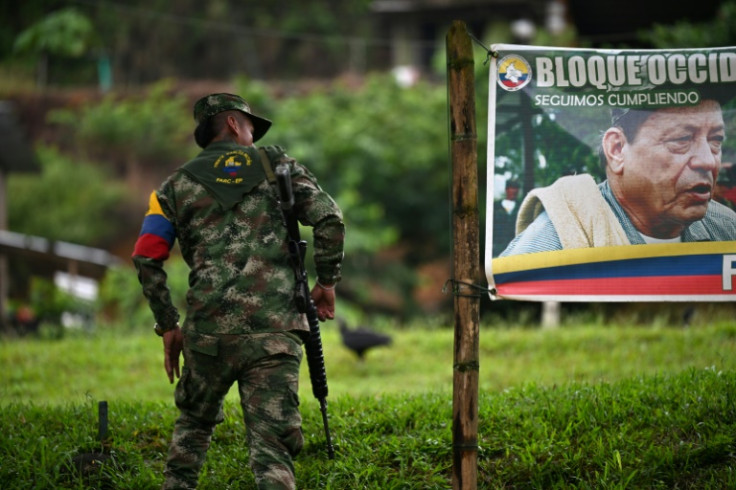
The recent attempted assassination of family members of Colombia's vice president highlights the worsening security situation in the southwest of the country, raising concerns about the viability of an already struggling peace process with a major armed group in the region, InSight Crime detailed in a recent analysis.
On June 16, men on motorcycles opened fire on a vehicle carrying Sigifredo Márquez, the father of Vice President Francia Márquez, and her six-year-old nephew near Jamundí, Valle del Cauca. The pair escaped unharmed.
Authorities have attributed the attack to the Jaime Martínez Front, a subgroup of the Central General Staff (Estado Mayor Central – EMC), a federation of dissident fronts from the now-defunct Revolutionary Armed Forces of Colombia (Fuerzas Armadas Revolucionarias de Colombia – FARC).
The EMC has been implicated in a recent surge of violence in Cauca and Valle del Cauca. Cauca and Valle del Cauca are critical areas for the drug trade, featuring principal coca-growing regions, cocaine production labs, and key departure points for drugs.
The outlet recalled other incidents, saying they are part of a broader pattern of violence by EMC groups in these departments, including assaults on police stations, military helicopters, and the use of motorcycle bombs and explosives, resulting in numerous casualties.
The spike in violence follows the Colombian government's decision to partially suspend a ceasefire with the EMC in Cauca, Valle del Cauca, and Nariño after EMC members killed an Indigenous leader in Cauca. This ceasefire, initiated in October 2023, was a component of President Gustavo Petro's Total Peace plan aimed at negotiating peace with Colombia's primary armed groups and criminal gangs.
In response to the ceasefire suspension, EMC leader Néstor Gregorio Vera Fernández, alias "Iván Mordisco," declared that the group would cease dialogue unless the nationwide ceasefire was reinstated. This declaration has led to a split within the EMC, with some factions resuming attacks on the government while others, comprising about 40% of the organization, continue negotiations.
President Petro has shifted to a "total war" approach against the EMC, a stark contrast to his previous strategy involving ceasefires to reduce violence.
The increasing violence in southwestern Colombia, including the attack on the vice president's family, indicates that peace in the region is becoming increasingly elusive.
During the ceasefire, the EMC redirected its efforts towards other armed groups, using the period to strengthen its hold on illicit economies in the region. This has led to increased recruitment and territorial control, making them a formidable presence against rival groups like the National Liberation Army (Ejército de Liberación Nacional – ELN) and the Second Marquetalia.
But with the ceasefire no longer in place, the BOCJA faces mounting pressure from military forces. Their attacks are likely attempts to leverage negotiations, but the government has maintained a firm stance against reinstating the ceasefire. Defense Minister Iván Velásquez emphasized this position in a speech to Congress on June 17, stating there would be no resumption of the ceasefire in Nariño, Cauca, and Valle del Cauca despite continued violence and military operations.
The government remains open to negotiations but demands a de-escalation of violence from EMC dissidents. However, ongoing attacks and military responses have made the prospect of resuming dialogue increasingly unlikely.
© 2025 Latin Times. All rights reserved. Do not reproduce without permission.





